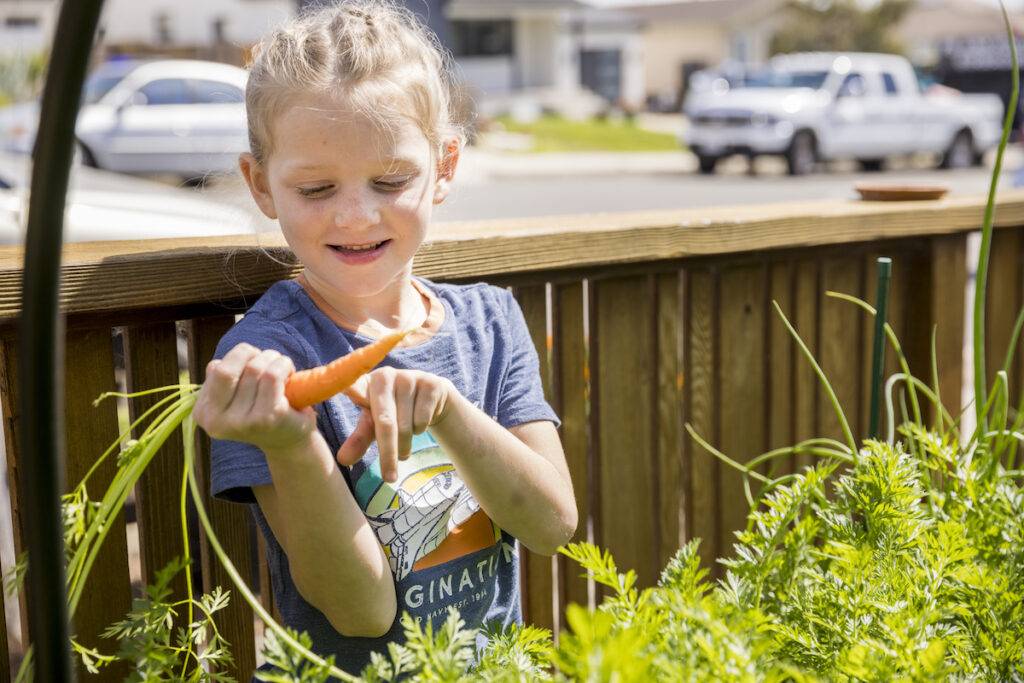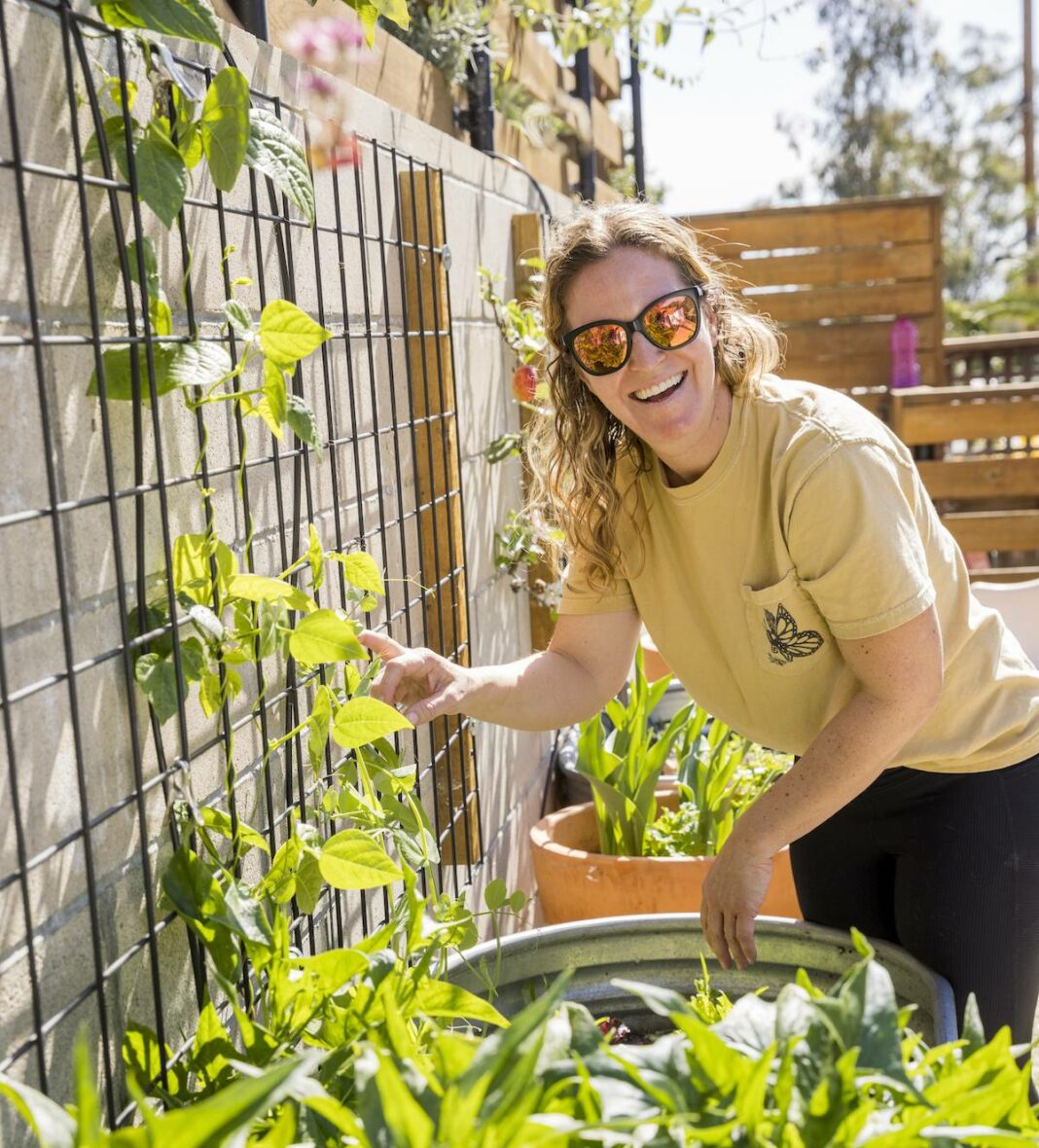A garden provides an essential connection to nature and can be a tool in self-care.
There is no right or wrong way to have a home garden, no size requirements, no “must-have” plants. Maybe you have the privilege of a yard garden at home or have turned your balcony into a lush retreat. Or you appreciate a broader definition of garden to include green spaces in your community. We can engage with the gardens growing around us — in a neighbor’s yard, a nearby park, a community garden, or a local nursery. Here are some simple tips for gardening for self-care.

Stop to smell the roses
My kids and I have a routine: If you see a rose, you must stop and smell it. No ifs, ands, or buts. I often hear my daughter when I am rushing to walk the dogs, “Mom, there is a rose … smell it!” This is your reminder to literally stop and smell them. Breathe in the scent for five seconds, hold it for five, and release it for five. What does the scent remind you of? How did it feel to stop and engage with nature, even briefly?
Plant what brings you joy
What makes you smile when you connect with your outdoor space? Do you like growing food? Do you want more hummingbirds and pollinators in the garden? Do you love roses, poppies, or sweet peas? It’s essential to plant for your climate, but also for your heart and mind. The more we plant for joy, the more likely we are to connect with the Earth, work our gardens, and ultimately connect our small ecosystem to the larger world.
Set time aside to walk or just be in nature
It could be in your home garden, on a walk around your block, while visiting a community garden, or by wandering around your favorite nursery. Several times a week, I simply go outside and walk through my garden. I inspect, touch, smell, and just breathe in the space. It allows me to engage in self-care and experience stillness and peace. It also allows me time to check on the health of my garden without focusing on a task.
Get dirty
Put your hands in the dirt! Recently I was gardening with my daughter and I heard her say, “Mom, did you know mud is good for you.” I turned around and she was covered head to toe. I couldn’t help but laugh. Yes, mud is good for your skin and your mental health. Did you know that a common soil bacterium, Mycobacterium vaccae, increases serotonin in our prefrontal cortex? I call serotonin the happy chemical. It is one of the neurotransmitters in our brain responsible for regulating our mood (i.e., reducing depression and anxiety). Additionally, it plays a huge role in our digestive and gut health, sleep patterns, wound healing, sexual desire, and bone density. So without knowing the years of research on the subject, my 7-year-old was right, mud is good for you!


